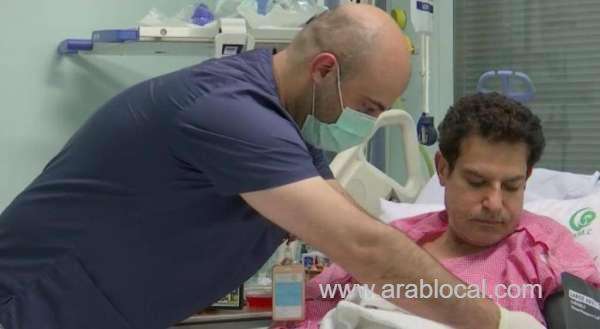A Saudi Arabian medical team rescued the head of the Iranian medical mission during the Hajj season, Mohammad Reza Gholamreza Refatiani, who suffered a heart attack while performing Hajj rituals.
A medical staff at King Abdullah Medical City in Makkah successfully saved Refatiani's life, according to Saudi Press Agency (SPA).
The 60-year-old Refatiani, who is not suffering from chronic diseases, felt chest pains while working with his country's medical mission. He was transferred to Ajyad Hospital, then to King Abdullah Medical City.
After widening and stenting the posterior left coronary artery, doctors performed a catheterization procedure to open it.
When doctors noticed Refatiani's pain persisted, they performed a second catheterization procedure to expand the left anterior coronary artery, remove the stenosis he suffers, and place a stent using the most advanced technology available.
According to Dr. Mohammed Al-Ateen, consultant cardiologist at King Abdullah Medical City, the emergency system in place to serve pilgrims was effective in transferring Refatiani to the hospital after experiencing symptoms of a severe heart attack.
"The case was handled at a record speed, which saved the Iranian pilgrim's life."
The King's Custodian of the Two Holy Mosques King Salman and the Crown Prince have instructed the health system to provide the best medical services in accordance with international standards for all citizens and visitors of the Kingdom, especially pilgrims.
He thanked the Saudi medical staff for supervising his treatment. The pilgrim praised the quality of medical care provided to pilgrims and the level of care he received throughout his treatment, including catheterization and stent placement, after which he left the hospital.
More than 93,229 pilgrims were served by the ministry's hospitals and health centers in Makkah, Arafat, Muzdalifah, Mina, Jamarat, and Taif, including 10 open-heart surgeries, 187 cardiac catheterizations, 379 dialysis operations, and more than 250 surgeries, as well as the Virtual Health Hospital, which served more than 2,200 pilgrims.







